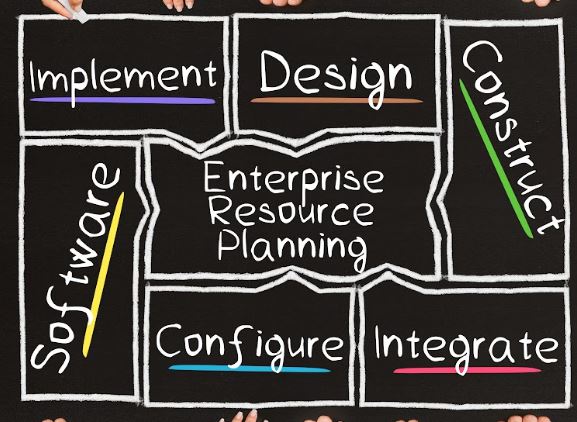
ERP or enterprise resource planning is necessary for automating business processes and centralized data sources. ERP implementation is changing the design of business processes through new system capabilities, configuring software, transferring the organization’s data, and training users. It is a process that can take a long time, depending on the size of an organization. In this process, you will need a project team made up of stakeholders from all departments in the company.
Integrating ERP solutions helps enterprises save resources and respond to a dynamic business environment. Whereas implementing ERP enables enterprises to have an advantage over competitors, it can be hard to implement as it affects business processes across the organization. Although the implementation may be complex, ERP software benefits outweigh the challenges.
Read through this article to learn 8 common ERP implementation challenges and how to address them.
1. Poor Starting Point
Without a properly thought-out strategy for ERP implementation, you may find yourself integrating it with a process in your company that doesn’t function well. This means that you’ll not be able to get the most of what ERP offers. Take time to analyze all existing business processes to know and understand the extent to which you need ERP.
2. Delayed Approval By Top Management
On most occasions, the approval of the project by the top management takes a long time to process, slowing the ERP implementation. It’s crucial to clear the scope, cost, and benefit of the ERP implementation to the top management level for speeding up the process and enjoying the results faster.
3. Selecting ERP Vendors
There are countless ERP applications in the ERP market, all of which are believed to be the best. It may be hard to choose if you don’t have any background information on them. You'll need to have an understanding of the various portfolios to select what suits your business.

4. Management Of The Project
Considering that implementation of ERP consists of several phases, including planning, data transfer, testing, and deployment, among others, managing the project could quickly go out of hand. This is because all departments in the company are trying their best to discharge their ERP project responsibilities as they work on other tasks. Proper ERP project management requires realistic expectations, consistent back and forth communication, and achievable time frames to work effectively and efficiently. Go with the professionals at Syte Consulting Group for ERP excellence within your business.
5. Technical Problems
ERP implementation involves several technical adjustments. These include purchasing and installing new hardware and servers, modernization of the internal network, and improving the speed and bandwidth of the existing internet access. These technical adjustments could turn into problems if overlooked, resulting in a considerable impact on the overall outcome of ERP implementation. The system could slow down performance, which, in turn, makes the business lag behind. So, it would be best to invest in quality software and systems, train your employees, and have a management plan to mitigate this problem.
6. Data Quality Issues
Companies that have to replace a legacy ERP system with a more advanced ERP solution face challenges with data quality. This can be due to the legacy system not being compatible with the new system. The entire project team needs to understand the adjustments that need to be made and plan meticulously before choosing new software for the system to work comfortably.
7. Inadequate Training For Employees
Employees who are not prepared and trained for ERP implementation are likely to be put off by the system and gradually become less productive. This can negatively affect the company. The company management will have to schedule training for employees in using the new software so that they can have an easy time working and performing their duties as expected.
8. Excessive Expenditure
The greatest advantage of ERP implementation is that it makes business more efficient, but this comes with a price. The work that goes into implementing ERP is costly. This is because to customize and meet the needs of your company, you'll require consultants who provide this service at a fee that is within USD$150 - USD$175 per hour. Other costs include data migration that takes about 10% - 15% of the total project cost, and training fees.
To avoid dealing with excess expenses, it is advisable for company management to budget for the full implementation on the higher side so that such costs that may be overlooked are comfortably covered.
ERP Excellence
ERP is considered a deal-breaker so much that it has gained popularity among business people. Any company management planning to upgrade their ERP system has to be prepared psychologically and financially for an overhaul. The implementation requires quite a lot of effort and affects the entire company. ERP is a worthwhile investment if planned and executed well. With ERP, your company can be assured of improved business productivity and efficiency. It's time to ensure ERP excellence for your company!
